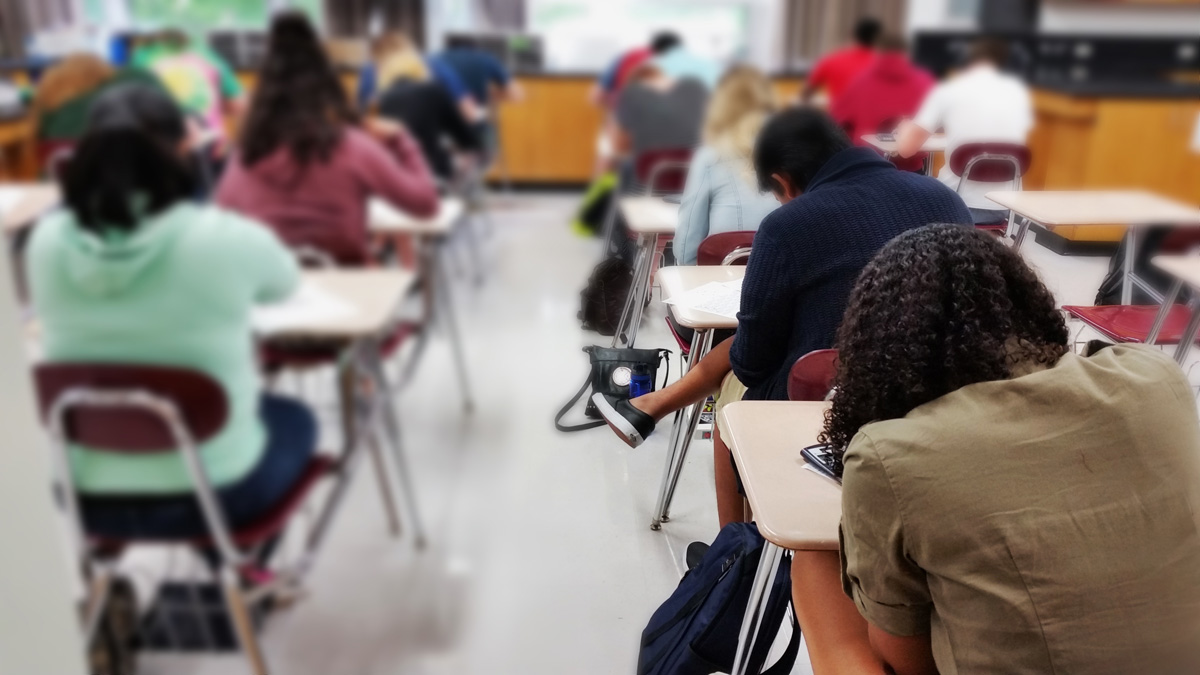Tips for Back To School Anxieties
August 20, 2021 | Mental Health Awareness

Returning to school is often an exciting time for youth but it can also be very stressful for many. There can be much excitement in reconnecting with friends and in starting a new adventure. However, kids often have concerns about meeting new teachers, learning a new campus, managing schoolwork, avoiding bullies and hoping their friends are in their classes.
Students with psychiatric disorders face additional challenges. Dr. Robert Wilson, a Psychiatrist and Medical Director at innovaTel who specializes in treating children, offered some insights on what to expect as the new school year approaches.
Q: What type of anxieties or concerns are typically related to kids going back to school? What do you see most often?
A: The student with ADHD may worry about keeping up or getting in trouble due to impulsive actions. The student with depression or social anxiety may feel overwhelmed with the prospect of having to interact socially. Those with OCD may worry they will not be able to manage their anxiety in school.
Q: Considering the state of the world at the moment, are there any additional anxieties that may arise related to COVID, mask mandates, economic struggles, etc.?
A: This year brings with it the additional stress of returning to in-person classes after many students attended virtual school most or all of the previous school year. The in-person school day may be longer than the virtual school day was, and some may find they’re more tired by the end of the day. Many teen students liked being able to sleep in and roll out of bed just in time to sign in for classes, which isn’t possible with in-person learning.
Students can also have additional social stress as they will have to interact with peers socially all day, not having the ability to turn off their camera and walk away. On the positive side, students may find it easier to ask for help in-person than online. There may be fewer distractions in the classroom than when at home.
Many students did not learn as well this past year and may be behind starting the new school term. This may be particularly problematic in those with learning disorders or ADHD. It may be necessary for some to receive accommodations as specified in a 504 Plan or an IEP.
Q: What should providers look for this time of year with their child and adolescent patients?
A: While it is common for most youth to experience at least mild anxiety around the start of the new school year, this usually passes quickly within the first few days. However, some children will experience more intense or longer lasting anxiety. When a child expresses anxiety, do not try to dismiss it (“There’s no need to worry”), but listen and validate their feelings (“Yes, that can be hard”). The anxiety about starting a new school year tends to resolve quickly once classes start, but the excitement of the new school year can remain. Do not ask questions implying they should be anxious (“Are you worried about having Mr. Jones for science this year?”), but instead be curious (“What will you be learning in science this year?”).
Q: What tips would you offer to help soothe the anxieties related to back to school season?
A: Routines are another way to manage anxiety. Maintaining regular bedtimes and morning routines help provide stability. Start these 1-2 weeks before school starts. The back-to-school shopping experience can also add some excitement to help decrease the amount of anxiety. Taking advantage of any school open house dates prior to the first day gives students an opportunity to meet their teacher(s) and start getting familiar with the building and where they need to go. One can even play a game where the child and the parent take turns with one naming a room and the other leading them to that room.
If a parent is concerned that their child will have difficulty, they should let someone at the school know so they can help ease the transition. Engaging the student in an activity upon arrival, especially if with a friend, may ease their transition. While it is difficult, it is okay for a parent to leave a child crying. Most children are resilient and will recover and do well.
Q: Is there anything else providers and parents should look for this time of year?
A: Not all children will verbalize that they are anxious. They may seek repeated reassurance that everything will be okay. Anxiety may show up in the form of frequent headaches or upset stomachs. They may start having difficulty going to sleep on school nights or waking when they normally sleep through the night. If these become patterns, check in with their pediatrician who can help rule out medical problems and refer for a more detailed mental health evaluation. For children already in treatment, it is important to continue during this transition. If therapy lapsed over the summer, get it back in place prior to school starting. If medication lapsed, contact the person who prescribed it for instructions on safely restarting.
While going back to school can be a stressful time, preparation can set the stage for a positive new school year.
Newsletter sign up
Internet Explorer is no longer supported.
Please use a different browser like Edge, Chrome or Firefox to enjoy a full web experience.
It's easy to make the switch.
Enjoy better browsing and increased security.
